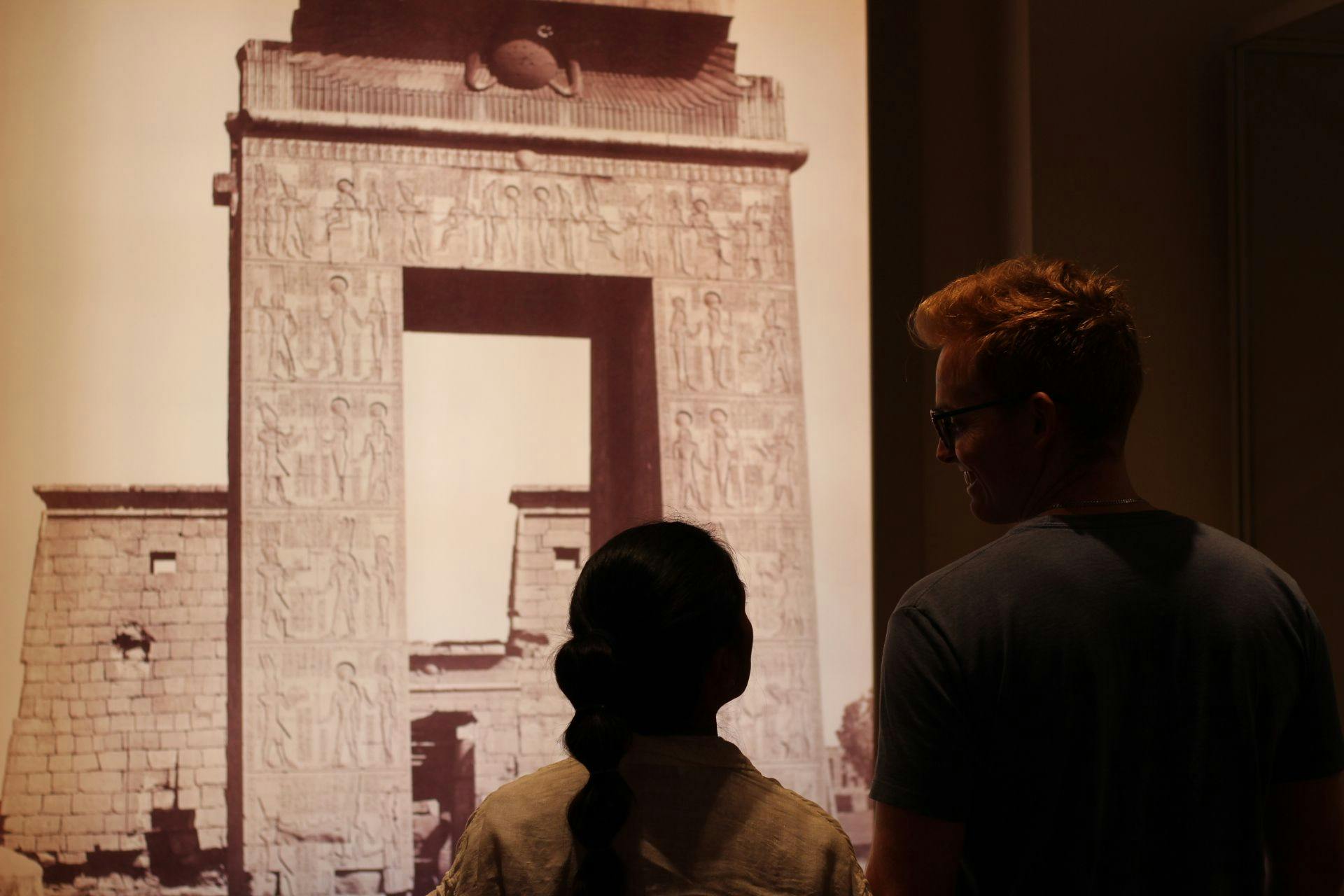The Museum is open daily from 10 a.m. to 5 p.m.
All parking in and around Balboa Park now requires payment. For more information, please refer to the City of San Diego website.

About the Exhibit
Drawing influence from changes in the natural world and shifts in social, political, and religious beliefs, ancient Egyptian culture experienced vast changes over millennia.
Just as we do today, the ancient Egyptians held a variety of professions including farming, building, and trading goods, and they participated in familiar pastimes like weaving, playing board games, and brewing beer. Inspired by the landscape and wildlife around them, their business practices, art, architecture, and religious beliefs reflect their connection to the Nile River and regional animals such as hippopotami, ibis, baboons, and falcons.
Although scholars consider the conclusion of ancient Egypt to be the end of the Ptolemaic Period in 30 CE, the descendants of the ancient Egyptians still prosper today. These descendants continue to have diverse cultural, religious, and political beliefs and practices.
The exhibition takes a closer look at the unique and complex lives of the peoples of ancient Egypt; with a focus on everyday life, the importance of animals and the land, life after death, and the reign of Pharaoh Akhenaten. The cultural objects within this exhibition date as far back as the 5000 BCE and range from serving bowls and makeup to funerary steles and protective amulets.
Displaying the Dead: Changing our Practice
In Fall 2018, we removed the remains of eight people from display in this gallery. They were moved to a sanctuary space where they have been looked after alongside more than 5,000 other individuals currently in the Museum’s care.
We also removed the remains of two ancient Egyptian individuals from display in this gallery. These human remains were loaned to our institution from the Natural History Museum of Los Angeles County, and that loan has been recalled.
Many of these human remains were taken from burial sites for the purpose of research and display, often without permission from the deceased, their family, or descendant communities.
Our Policy
The Museum of Us recognizes that all people should have the right to decide how their bodies, and those of their relatives and ancestors, will be treated after death. For each of the individuals whose remains are held at this museum, we will seek out descendants with whom we can consult on how to best care for the remains of their forebearers.
Read our Policy on the Curation of Human Remains for more information about how the Museum of Us policy about human remains is changing, and visit Cultural Resources for more information on repatriation practices at the Museum of Us.
Exhibit Images

Supporters
Thank you to our supporters:
Ellen Browning Scripps Foundation
The Museum of Us recognizes that it sits on the unceded ancestral homeland of the Kumeyaay Nation. The Museum extends its respect and gratitude to the Kumeyaay peoples who have lived here for millennia.
The Museum is open daily, Monday through Sunday, from 10 a.m. to 5 p.m.
1350 El Prado, San Diego, CA 92101
